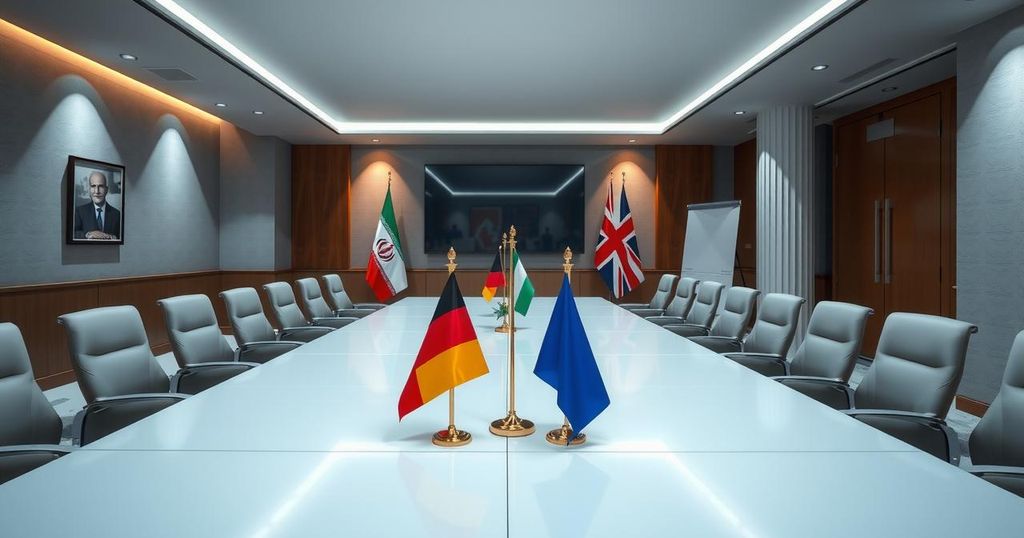Global news
ASIA, BERLIN, DIPLOMACY, DIPLOMATIC RELATIONS, ECONOMIC SANCTIONS, EUROPE, FOR, FOROUZANDEH VADIATI, GERMANY, HUMAN RIGHTS AND WOMEN AFFAIRS, IRAN, MINISTRY, NUCLEAR AGREEMENT, NUCLEAR POLICY, SADDAM HUSSEIN, SANCTIONS, UK, UN HUMAN RIGHTS COUNCIL, UNHRC, US, VA, VADIATI
Marcus Li
0 Comments
Iran Protests to British and German Diplomats Over UNHRC Resolution Draft
Iran summoned British and German diplomats to express concerns over a UNHRC draft resolution extending a Special Rapporteur’s mandate. The Iranian officials criticized historical human rights abuses by both countries and their current support for actions perceived as harmful to Iran and the Palestinian people. Both diplomats agreed to convey Iran’s protests to their governments.
Iran’s Foreign Ministry summoned diplomatic representatives from Britain and Germany to express strong dissatisfaction regarding a draft resolution at the UN Human Rights Council (UNHRC). The summons was made by Forouzandeh Vadiati, the Director General of Human Rights and Women Affairs, who addressed the representatives about their governments’ conduct during the 58th UNHRC session. Vadiati criticized the initiation of a draft to extend the Special Rapporteur’s mandate, labeling the approach as both irresponsible and provocative.
In discussions with the German ambassador, Vadiati condemned the perceived manipulation of the UNHRC, highlighting the exploitation of human rights issues as a means of pressuring the Iranian populace. She referenced Germany’s past human rights violations, specifically mentioning its provision of chemical weapons to Saddam Hussein’s regime during the Iran-Iraq war. This historical context aimed to underscore the inconsistency between Germany’s current human rights advocacy and its past actions.
Further, Vadiati addressed the British charge d’affaires, calling attention to the UK’s historical involvement in Iranian domestic matters and its negative stance toward Iran within the UN framework. She criticized the British government for its unconstructive measures, asserting that such actions undermine the credibility of UN-affiliated human rights institutions and diminish global confidence in these organizations.
In addition to these grievances, Vadiati condemned both Germany and the UK for supporting the Israeli regime’s alleged war crimes and the genocide against Palestinians, as well as their complicity in U.S. unilateral sanctions against Iran. She firmly stated that both nations lack the credibility to advocate for human rights due to their actions. Following these discussions, the envoys acknowledged their obligation to relay Iran’s concerns to their respective governments.
The Iranian Foreign Ministry has formally protested against Britain and Germany regarding their recent initiatives at the UN Human Rights Council. Vadiati’s criticisms highlight an ongoing tension rooted in historical actions and current geopolitical controversies, particularly regarding human rights advocacy and international sanctions. The discussions emphasize the complexities of human rights dialogues in the context of perceived hypocrisy by Western nations toward Iran.
Original Source: ifpnews.com




Post Comment